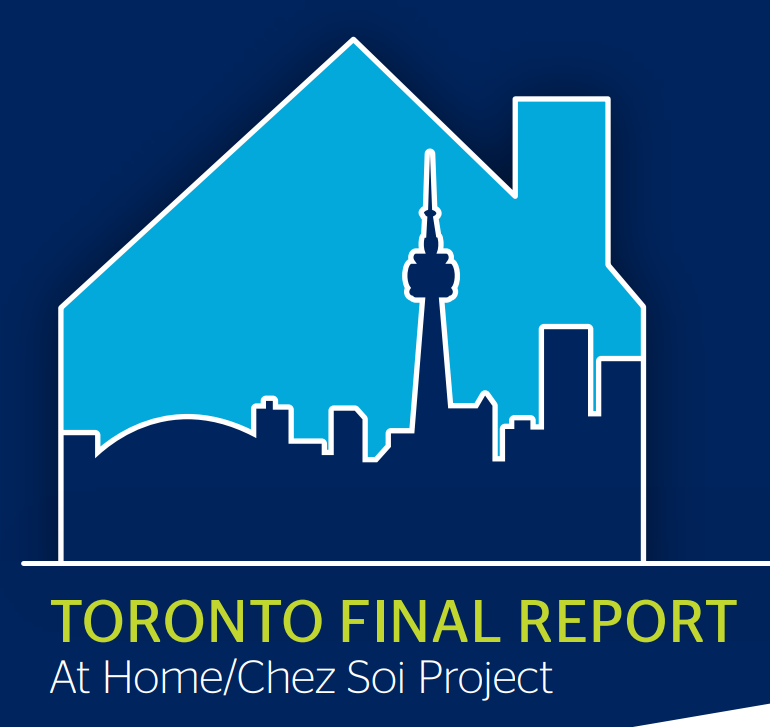If you are in distress, you can call or text 988 at any time. If it is an emergency, call 9-1-1 or go to your local emergency department.
- Reports, Research
Toronto Final Report: At Home/Chez Soi project
Homelessness is an ongoing social and economic problem that affects thousands of Canadians. In Toronto, Canada’s most populous city, more than 5,000 individuals are homeless on any given night and in 2008 approximately 28,000 unique individuals used homeless shelters over the course of the year. Housing First has emerged as an evidence-based practice for meeting the unique needs of this population. This report describes findings from the Toronto site of the At Home/Chez Soi project. Unique contextual and developmental features are also discussed, including an intervention that provides ethnoracial Intensive Case Management (ER-ICM) to better address the needs of individuals from ethnoracial backgrounds who are homeless. Prior to the initiation of the At Home/Chez Soi project, Toronto already had a wide array of services for people who are homeless and/or have a mental illness. The involvement of people with lived experience of homelessness and mental health problems (PWLE) in the planning, development, and execution of the study was another key feature of the Toronto site.This resource was published in 2014. The data may be out of date.
- Reports, Research
Toronto Final Report: At Home/Chez Soi project
Toronto Final Report: At Home/Chez Soi project
- Housing and Homelessness
Homelessness is an ongoing social and economic problem that affects thousands of Canadians. In Toronto, Canada’s most populous city, more than 5,000 individuals are homeless on any given night and in 2008 approximately 28,000 unique individuals used homeless shelters over the course of the year. Housing First has emerged as an evidence-based practice for meeting the unique needs of this population. This report describes findings from the Toronto site of the At Home/Chez Soi project. Unique contextual and developmental features are also discussed, including an intervention that provides ethnoracial Intensive Case Management (ER-ICM) to better address the needs of individuals from ethnoracial backgrounds who are homeless. Prior to the initiation of the At Home/Chez Soi project, Toronto already had a wide array of services for people who are homeless and/or have a mental illness. The involvement of people with lived experience of homelessness and mental health problems (PWLE) in the planning, development, and execution of the study was another key feature of the Toronto site.
This resource was published in 2014. The data may be out of date.
SHARE THIS PAGE
RELATED

Review our Assessment Framework for Mental Health Apps — a national framework containing key standards for safe, quality, and effective mental health apps in Canada.

To help expand the use of e-mental health services, we developed four online learning modules based on our Toolkit for E-Mental Health Implementation, in collaboration with the Centre for Addiction and Mental Health (CAMH).

Stepped Care 2.0© (SC2.0) is a transformative model for organizing and delivering evidence-informed mental health and substance use services.

